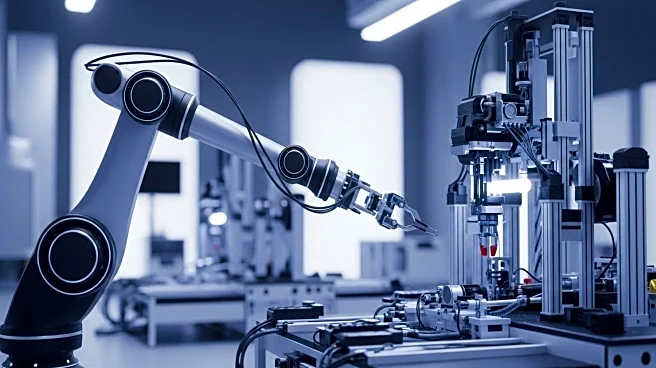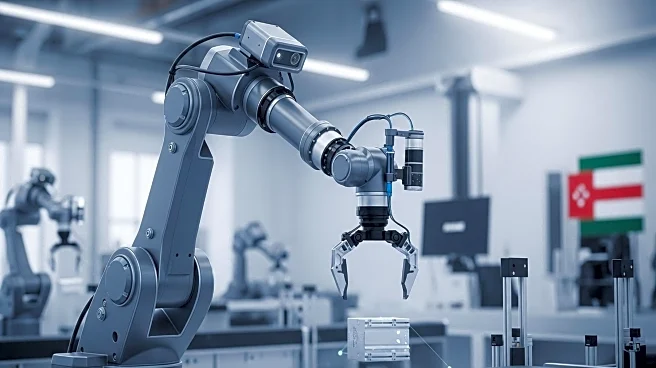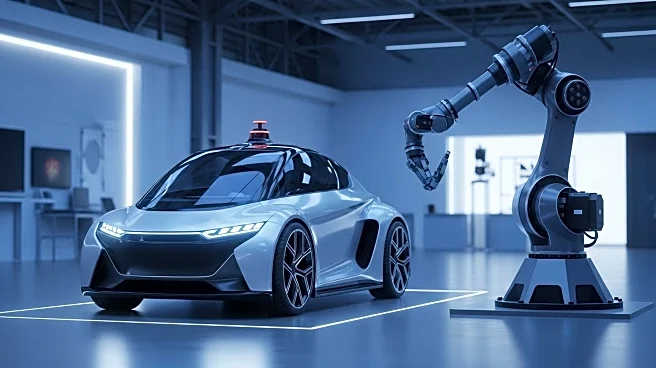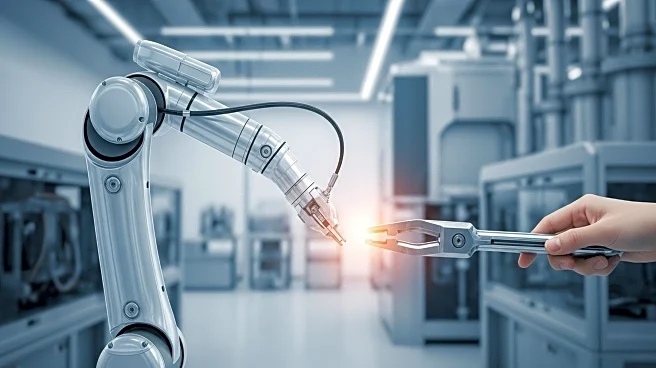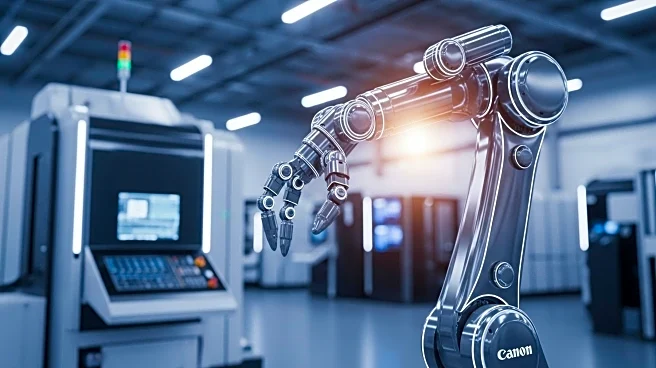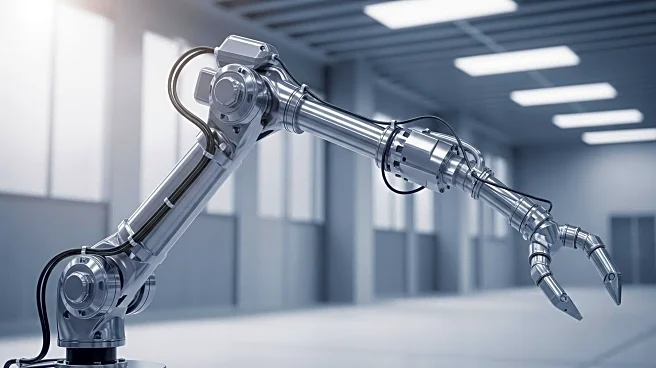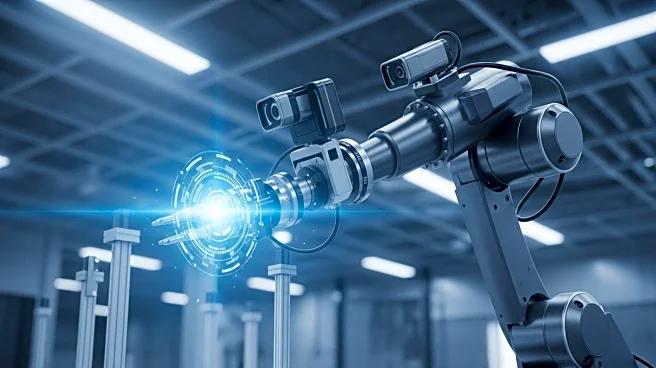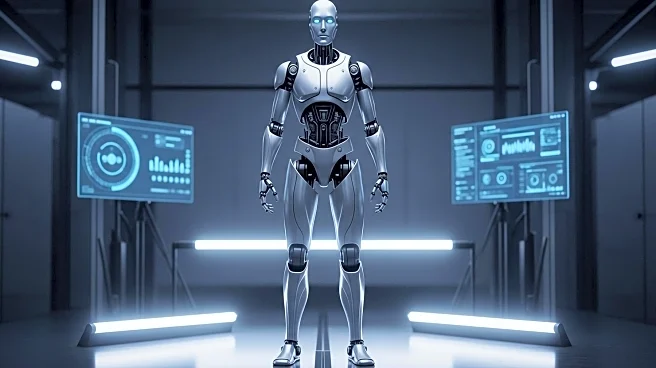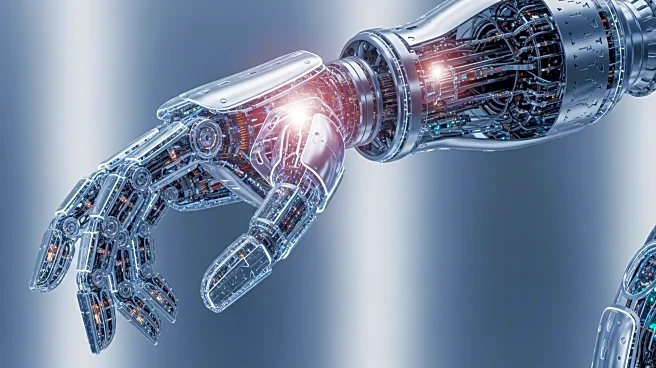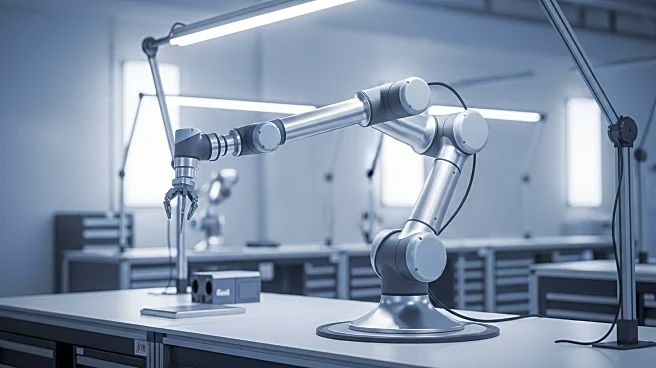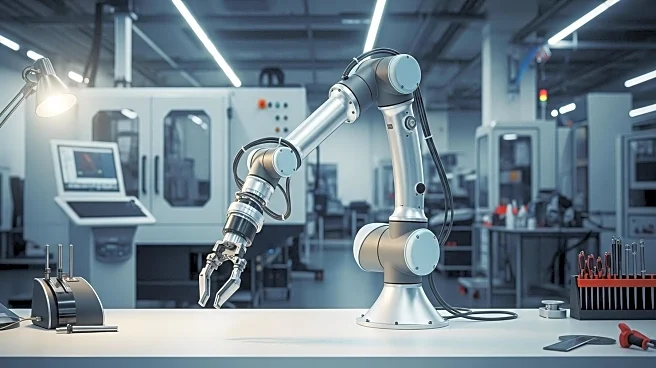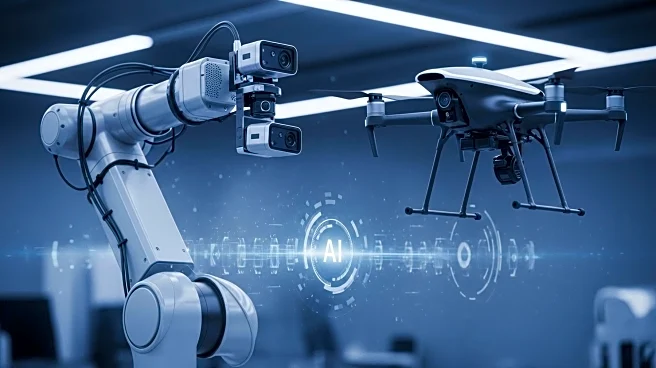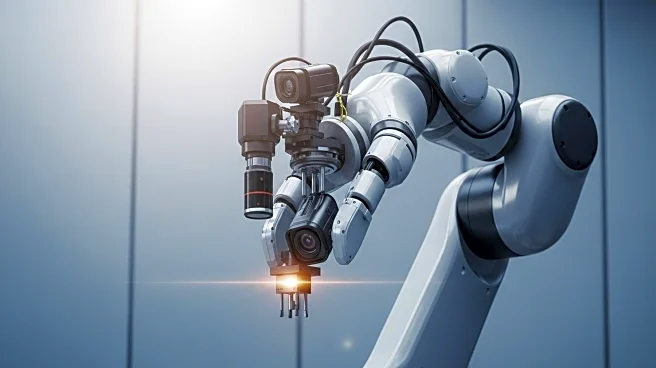What is the story about?
What's Happening?
Rollon Corporation has introduced its latest Cobot Transfer Unit (CTU), designed to improve automation processes with reduced lead times. The CTU is a comprehensive system that includes an actuator, gearbox, motor, and electrical cabinet. A significant feature of this new release is the adoption of a 220V power supply, which eliminates the need for industrial voltage, making it more accessible for various applications. The integration of the R-Smart actuator enhances the system's stiffness and load capacity, providing robust performance. Additionally, Rollon’s URCap software facilitates intuitive programming directly from the Universal Robots teach pendant, supporting the entire range of Universal Robots. The CTU is constructed with a steel-reinforced belt drive, extruded aluminum profile, and recirculating ball guides, offering high stiffness and lightweight construction. It provides strokes of up to 5500mm, with extensions available upon request.
Why It's Important?
The launch of Rollon’s new Cobot Transfer Unit is significant for the automation industry, as it offers improved efficiency and flexibility in robotic applications. By reducing lead times and eliminating the need for industrial voltage, the CTU makes advanced automation technology more accessible to a broader range of industries, potentially lowering costs and increasing productivity. The enhanced stiffness and load capacity of the system allow for more demanding applications, which can lead to innovations in manufacturing processes. The intuitive programming capabilities provided by the URCap software simplify integration and operation, making it easier for companies to adopt and utilize robotic systems effectively. This development could lead to increased adoption of cobots in various sectors, driving growth in the automation market.
What's Next?
As Rollon’s Cobot Transfer Unit becomes available, industries that rely on automation are likely to explore its capabilities to enhance their operations. Companies may begin integrating the CTU into their existing systems to improve efficiency and reduce operational costs. The support for the entire range of Universal Robots suggests potential collaborations and partnerships that could further expand the use of cobots in diverse applications. Rollon may continue to innovate and develop additional features or extensions to meet specific industry needs, potentially leading to further advancements in automation technology.
Beyond the Headlines
The introduction of the Cobot Transfer Unit by Rollon Corporation may have broader implications for the future of automation. As cobots become more accessible and easier to integrate, there could be a shift towards more collaborative work environments where humans and robots work side by side. This could lead to changes in workforce dynamics, requiring new skills and training for employees to effectively interact with robotic systems. Additionally, the increased use of cobots may raise ethical considerations regarding job displacement and the need for policies that support workers affected by automation.
AI Generated Content
Do you find this article useful?
